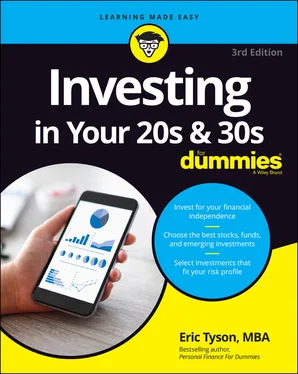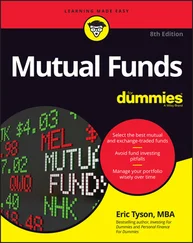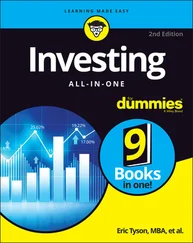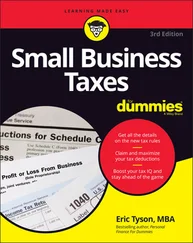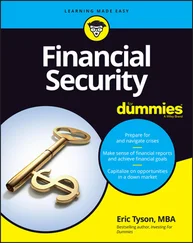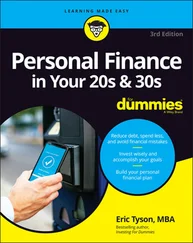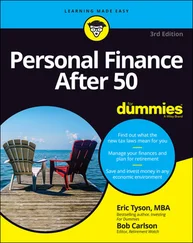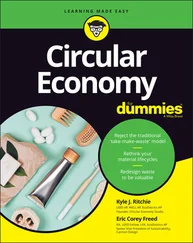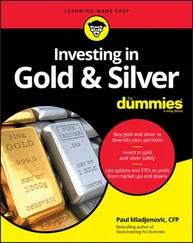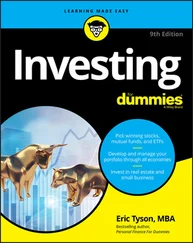Eric Tyson - Investing in Your 20s & 30s For Dummies
Здесь есть возможность читать онлайн «Eric Tyson - Investing in Your 20s & 30s For Dummies» — ознакомительный отрывок электронной книги совершенно бесплатно, а после прочтения отрывка купить полную версию. В некоторых случаях можно слушать аудио, скачать через торрент в формате fb2 и присутствует краткое содержание. Жанр: unrecognised, на английском языке. Описание произведения, (предисловие) а так же отзывы посетителей доступны на портале библиотеки ЛибКат.
- Название:Investing in Your 20s & 30s For Dummies
- Автор:
- Жанр:
- Год:неизвестен
- ISBN:нет данных
- Рейтинг книги:4 / 5. Голосов: 1
-
Избранное:Добавить в избранное
- Отзывы:
-
Ваша оценка:
- 80
- 1
- 2
- 3
- 4
- 5
Investing in Your 20s & 30s For Dummies: краткое содержание, описание и аннотация
Предлагаем к чтению аннотацию, описание, краткое содержание или предисловие (зависит от того, что написал сам автор книги «Investing in Your 20s & 30s For Dummies»). Если вы не нашли необходимую информацию о книге — напишите в комментариях, мы постараемся отыскать её.
Discover your unique investing style!
Inside. . .
Learn how to start investingChoose stocks and funds wiselyMinimize your tax billDecide how much to investGet into real estateManage your level of riskInvest in small businessDiversify your portfolio
Investing in Your 20s & 30s For Dummies — читать онлайн ознакомительный отрывок
Ниже представлен текст книги, разбитый по страницам. Система сохранения места последней прочитанной страницы, позволяет с удобством читать онлайн бесплатно книгу «Investing in Your 20s & 30s For Dummies», без необходимости каждый раз заново искать на чём Вы остановились. Поставьте закладку, и сможете в любой момент перейти на страницу, на которой закончили чтение.
Интервал:
Закладка:
If a bank pays monthly interest, the bank also likely quotes a compounded effective annual yield. After the first month’s interest is credited to your account, that interest starts earning interest as well. So the bank may say that the account pays 1.5 percent, which compounds to an effective annual yield of 1.53 percent.
When you lend your money directly to a company — which is what you do when you invest in a bond that a corporation issues — you also receive interest. Bonds, as well as stocks (which are shares of ownership in a company), fluctuate in market value after they’re issued.
When you invest in a company’s stock, you hope that the stock increases (appreciates) in value. Of course, a stock can also decline, or depreciate, in value. This change in market value is part of your return from a stock or bond investment.
Stocks can also pay dividends, which are the company’s way of sharing some of its profits with you as a stockholder and thus are part of your return. Some companies, particularly those that are small or growing rapidly, choose to reinvest all their profits back into the company.
 Unless you held your investments in a tax-sheltered retirement account, you owe taxes on your return. Specifically, the dividends and investment appreciation that you realize upon selling are taxed, although often at relatively low rates. The tax rates on so-called long-term capital gains and stock dividends are currently and historically lower than the tax rates on other income. I discuss the different tax rates that affect your investments and explain how to make tax-wise investment decisions that fit with your overall personal financial situation and goals in Chapter 4.
Unless you held your investments in a tax-sheltered retirement account, you owe taxes on your return. Specifically, the dividends and investment appreciation that you realize upon selling are taxed, although often at relatively low rates. The tax rates on so-called long-term capital gains and stock dividends are currently and historically lower than the tax rates on other income. I discuss the different tax rates that affect your investments and explain how to make tax-wise investment decisions that fit with your overall personal financial situation and goals in Chapter 4.
Where to Invest and Get Advice
Discussing the companies through which you can invest and where to get investing advice may seem out of place to you if you started reading this book from the beginning. But I’m doing this because I strongly believe that you should begin to think about and understand the lay of the land in these important areas so you can make the best choices.
Selecting the firm or firms through which to do your investing is a hugely important decision. So is the decision about from whom to get or pay for investing advice. In this section, I address both of these topics.
Finding the best fund companies and brokers
Insurance companies, banks, investment brokerage firms, mutual funds — the list of companies that stand ready to help you invest your money is nearly endless. Most people stumble into a relationship with an investment firm. They may choose a company because their employer uses it for company retirement plans or they’ve read about or been referred to a particular company. Maybe one of your parents or another relative recommended or got you started with a particular investment company.
When you invest in certain securities — such as stocks and bonds and exchange-traded funds (ETFs) — and when you want to hold mutual funds from different companies in a single account, you need brokerage services. Brokers execute your trades to buy or sell stocks, bonds, and other securities and enable you to centralize your holdings of mutual funds, ETFs, and other investments. Your broker can also assist you with other services that may interest you.
Deciding which investment company is best for you depends on your needs and wants. In addition to fees, consider how important having a local branch office is to you. If you want to invest in mutual funds, you’ll want to choose a firm that offers access to good funds, including money market funds in which you can deposit money awaiting investment or proceeds from a sale.
 For the lowest trading commissions, you generally must place your trades online. But you should be careful. A low brokerage fee of, say, $7 or $10 per trade doesn’t really save you money if you trade a lot and rack up significant total commissions. (As you may know, some brokers are offering free online trading for stocks and certain other securities, but of course, they have to make this up elsewhere with fees for other needed services and by paying you little to nothing on your cash balances.) Also you pay more in taxes when you trade more frequently and realize shorter-term (one year or less) profits.
For the lowest trading commissions, you generally must place your trades online. But you should be careful. A low brokerage fee of, say, $7 or $10 per trade doesn’t really save you money if you trade a lot and rack up significant total commissions. (As you may know, some brokers are offering free online trading for stocks and certain other securities, but of course, they have to make this up elsewhere with fees for other needed services and by paying you little to nothing on your cash balances.) Also you pay more in taxes when you trade more frequently and realize shorter-term (one year or less) profits.
 Trading online is an easy way to act impulsively and emotionally when making important investment decisions. If you’re prone to such actions, or if you find yourself tracking and trading investments too closely, stay away from this form of trading and use the internet only to check account information and gather factual information. Increasing numbers of brokers offer account information and trading capabilities via apps, which, of course, can also promote addictive investment behaviors.
Trading online is an easy way to act impulsively and emotionally when making important investment decisions. If you’re prone to such actions, or if you find yourself tracking and trading investments too closely, stay away from this form of trading and use the internet only to check account information and gather factual information. Increasing numbers of brokers offer account information and trading capabilities via apps, which, of course, can also promote addictive investment behaviors.
Please see Chapter 9for more details on selecting the best investment brokerage firms and my top investment firm selections that offer mutual funds and ETFs and/or brokerage services.
Finding an acceptable advisor
I would always counsel folks who took personal finance courses I taught or who contacted me seeking advice to get educated before engaging the services of any financial advisor. How can you possibly evaluate the competence of someone you may hire if you yourself are financially clueless? You’ve got this book, so read it before you consider hiring someone for financial advice.
By taking the themes and major concepts of this book to heart, you greatly minimize your chances of making significant investment blunders, including hiring an incompetent or unethical advisor. You may be tempted, for example, to retain the services of an advisor who claims that he and his firm can predict the future economic environment and position your portfolio to take advantage. But you find in reading this book that financial advisors don’t have crystal balls and that you should steer clear of folks who purport to be able to jump into and out of investments based upon their forecasts.
 Finding a competent and objective financial advisor isn’t easy. Historically, most financial consultants work on commission, and the promise of that commission can cloud their judgment. Among the minority of fee-based advisors, almost all manage money, which creates other conflicts of interest. The more money you give them to invest and manage, the more money these advisors make. That’s why I generally prefer seeking financial (and tax) advice from advisors who sell their time (on an hourly basis) and don’t sell anything else.
Finding a competent and objective financial advisor isn’t easy. Historically, most financial consultants work on commission, and the promise of that commission can cloud their judgment. Among the minority of fee-based advisors, almost all manage money, which creates other conflicts of interest. The more money you give them to invest and manage, the more money these advisors make. That’s why I generally prefer seeking financial (and tax) advice from advisors who sell their time (on an hourly basis) and don’t sell anything else.
Because investment decisions are a critical part of financial planning, take note of the fact that the most common designations of educational training among professional money managers are MBA (master of business administration) and CFA (chartered financial analyst). Financial planners often have the CFP (certified financial planner) credential, and some tax advisors who work on an hourly basis have the PFS (personal financial specialist) credential.
 Advisors who provide investment advice and oversee at least $100 million must register with the U.S. Securities and Exchange Commission (SEC); otherwise, they generally register with the state that they make their principal place of business. They must file Form ADV, otherwise known as the Uniform Application for Investment Adviser Registration. This lengthy document asks investment advisors to provide in a uniform format such details as a breakdown of where their income comes from, their education and employment history, the types of securities the advisory firm recommends, and the advisor’s fee schedule.
Advisors who provide investment advice and oversee at least $100 million must register with the U.S. Securities and Exchange Commission (SEC); otherwise, they generally register with the state that they make their principal place of business. They must file Form ADV, otherwise known as the Uniform Application for Investment Adviser Registration. This lengthy document asks investment advisors to provide in a uniform format such details as a breakdown of where their income comes from, their education and employment history, the types of securities the advisory firm recommends, and the advisor’s fee schedule.
Интервал:
Закладка:
Похожие книги на «Investing in Your 20s & 30s For Dummies»
Представляем Вашему вниманию похожие книги на «Investing in Your 20s & 30s For Dummies» списком для выбора. Мы отобрали схожую по названию и смыслу литературу в надежде предоставить читателям больше вариантов отыскать новые, интересные, ещё непрочитанные произведения.
Обсуждение, отзывы о книге «Investing in Your 20s & 30s For Dummies» и просто собственные мнения читателей. Оставьте ваши комментарии, напишите, что Вы думаете о произведении, его смысле или главных героях. Укажите что конкретно понравилось, а что нет, и почему Вы так считаете.
